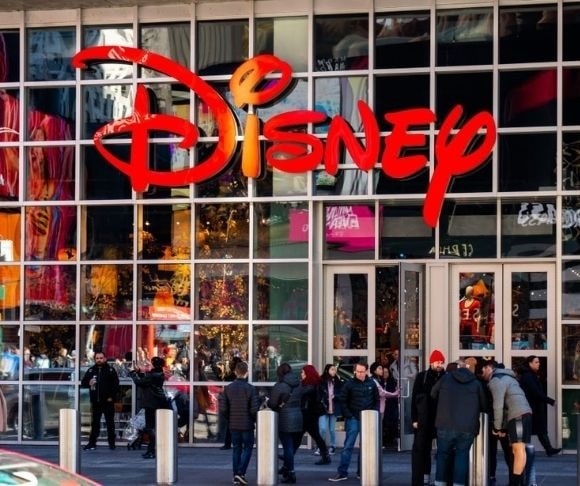What was once the must-owned stock on Wall Street has quickly turned into a toxic security. Disney shares recorded a weekly loss of 9.35%, adding to their year-to-date decline of more than 23%. The stock’s enormous rout in the financial market has been as magical as the Magic Kingdom. Indeed, if you bought at the very top in March 2021 at $200 a share, you would be as broke as a family of four visiting Disney World in the middle of the summer.
 Over the last 12 months, the company has lost a staggering 35% on the New York Stock Exchange, falling to $118. It turns out that having a secret agenda in your programming, advocating for teachers to instruct kindergarteners about sexual orientation and gender identity, and fighting against a state law on disingenuous grounds can leave a sour taste in investors’ mouths, especially at a time when outflows in the equities arena are escalating, and safe-haven Treasury yields are on the rise.
Over the last 12 months, the company has lost a staggering 35% on the New York Stock Exchange, falling to $118. It turns out that having a secret agenda in your programming, advocating for teachers to instruct kindergarteners about sexual orientation and gender identity, and fighting against a state law on disingenuous grounds can leave a sour taste in investors’ mouths, especially at a time when outflows in the equities arena are escalating, and safe-haven Treasury yields are on the rise.
The Florida House of Representatives passed legislation on Apr. 21 that would end Walt Disney’s special governing power in the Sunshine State, resulting in substantial tax implications for one of the state’s largest private-sector employers. Gov. Ron DeSantis (R) signed the bill when it arrived on his desk.
CEO Bob Chapek has been lambasted by both sides, with some lamenting that he took too long to speak out and others urging him to refrain from “cowering to a small political minority.” Conservatives have been laughing at Disney for becoming another example in the “go woke, go broke” crusade, mirroring the downward crumbling trend of streaming services Netflix and CNN+.
Market analysts have become increasingly bearish on the stock, with the number of “Buy” ratings declining from 25 to 15 and an increase in “Hold,” “Underperform,” and “Sell” ratings. At the same time, short interest has been minimal, with the percentage of float shorted standing at around 1%.
Something for Nothing in Baltimore
You can add Baltimore to the growing list of jurisdictions experimenting with a universal basic income, also known as a UBI, after newly-elected Mayor Brandon Scott confirmed he would extend $1,000 per month in free cash to low-income households for two years,
 The guaranteed income pilot project will start with 200 households across a metro area that faces a bombardment of violent crime and a horrific economy. There will be three criteria for eligibility: 18-24, biological or adoptive parents or guardians, and an income at or below the federal poverty level. The $4.8 million no strings attached program will be financed through the American Rescue Plan (ARP), and the city will partner with the local non-profit organization CASH Campaign of Maryland.
The guaranteed income pilot project will start with 200 households across a metro area that faces a bombardment of violent crime and a horrific economy. There will be three criteria for eligibility: 18-24, biological or adoptive parents or guardians, and an income at or below the federal poverty level. The $4.8 million no strings attached program will be financed through the American Rescue Plan (ARP), and the city will partner with the local non-profit organization CASH Campaign of Maryland.
“This is fundamentally about putting our families in a position to succeed,” Scott said in a statement. “We are putting money directly into the hands of our residents because they know more than anyone else what their families need to ascend the ladder of opportunity.”
Multiple cities across the country are either studying or launching UBI payments for impoverished households this year, including Chicago, Pittsburgh, New Orleans, Newark, and Rochester. Proponents contend that free cash can support the most vulnerable in society, while critics have warned about the fiscal strain and inflationary pressures of giving people money without any provisions.
Inflation Devours Retirement Nest Egg
The cost-of-living crisis is creating an abysmal situation for America’s seniors, forcing 56 million retirees to eat into their savings to cover higher prices for goods and services. Most of these individuals depend on a fixed income and limited savings, but with a depreciated purchasing power and a prolonged inflationary environment, it is becoming more challenging to sustain even a modest lifestyle.
Although Social Security recipients received a much higher cost-of-living adjustment (COLA) this year, the 5.9% boost was still way below the current state of inflation. In March, the consumer price index (CPI) surged 8.5%, driven by spikes in crucial staples, such as gasoline, electricity, food, and rent.
Recent studies have placed a spotlight on seniors’ growing concerns over inflation. The latest survey by the Allianz Life Insurance Company of North America found that only 40% of retirees think their income is keeping up with inflation. A Morning Consult poll learned that older U.S. adults are more worried about inflation than millennials and Generation Zers.
But this might be surprising, considering that Keynesian specialists have contended that inflation does not affect the poor and middle-class as much as it does the affluent. All kidding aside, these are trying times for much of the country, caused by reckless public policymaking by Republicans and Democrats that failed to foresee the consequences of spending and printing trillions of dollars in a short period. Was it a case of incompetence or indifference?




